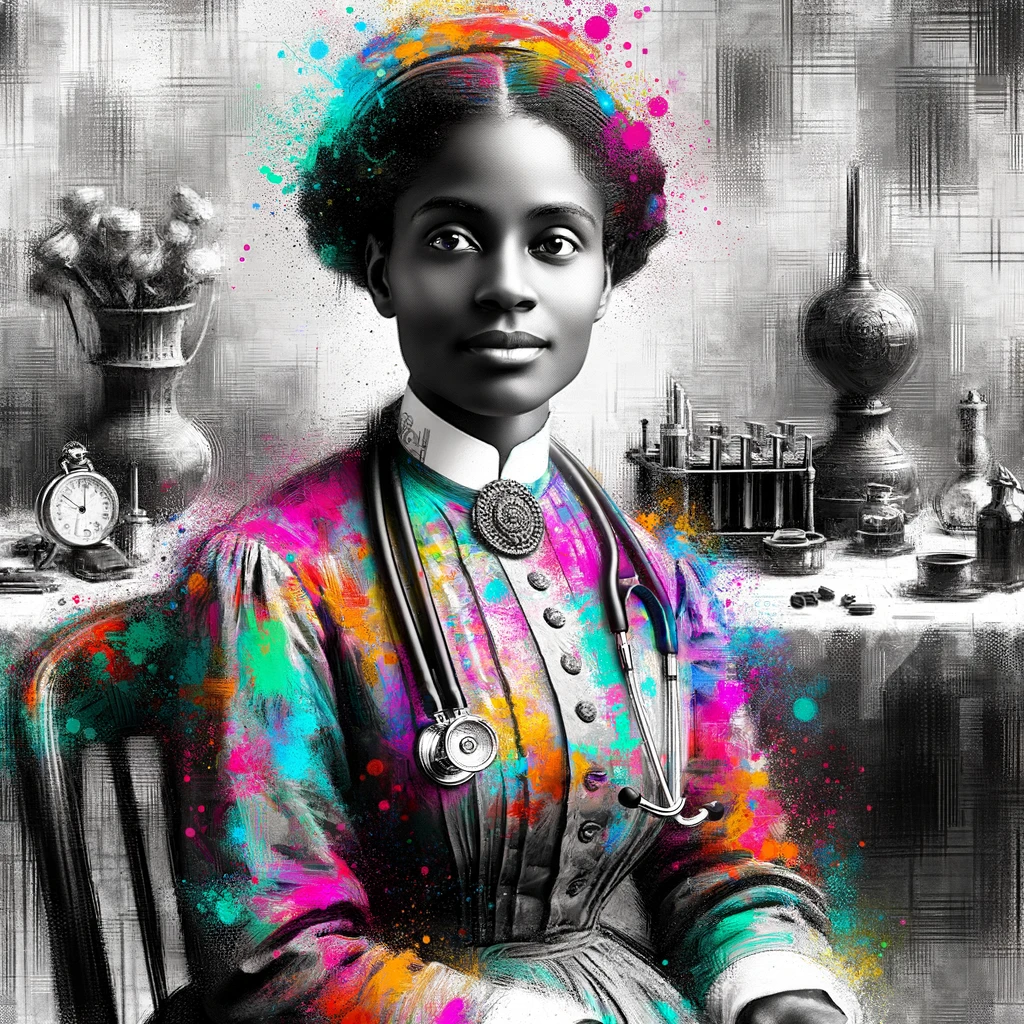
by Tara E. l February 8, 2024
Have you ever heard of Rebecca Crumpler? If not, you’re about to learn about an extraordinary person who changed the world of medicine. Rebecca Crumpler was the first African American woman physician in the United States. According to a New York Times article published in 2021, people often make the mistake of insisting Rebecca Cole, who graduated from Woman’s Medical College of Pennsylvania three years later, was the first. However, Rebecca Crumpler was the first to do it. Her journey wasn’t easy, but her determination and courage helped her succeed in a field that was, at the time, almost entirely off-limits to Black people and women. Let’s dive into her story, explore her challenges, her incredible contributions to healthcare, and why her legacy calls for more Black physicians today.
Who Was Rebecca Crumpler?
Rebecca Crumpler was born in Delaware in 1831. From a young age, she had a passion for helping others, especially regarding their health. This passion led her on a path that would make history. Despite the numerous obstacles placed in her way because of her race and gender, Rebecca refused to give up on her dream of becoming a doctor.
Becoming a Physician
In the 1850s, the idea of a woman, let alone a Black woman, becoming a doctor was almost unthinkable. But Rebecca was determined. She worked as a nurse in Massachusetts, which gave her valuable experience in caring for patients. Her hard work and talent didn’t go unnoticed. With the support of the doctors she worked with, Rebecca was accepted into the New England Female Medical College in 1860, a remarkable achievement.
Rebecca Crumpler graduated in 1864, becoming the first African American woman to earn an M.D. degree. This was a monumental achievement, not just for her but for the entire African American community and women across the country.
The Challenges She Faced
Imagine living in a time when people judged you not by your abilities or kindness but by the color of your skin or whether you were a man or a woman. This was the reality for Rebecca. Even after becoming a doctor, she faced constant discrimination. Patients sometimes refused her care, and other medical professionals didn’t take her seriously. But Rebecca didn’t let these challenges stop her. She knew her worth and the importance of her mission.
Her Contributions
After the Civil War ended, Rebecca moved to Richmond, Virginia, a place that had been deeply affected by the war. There, she provided medical care to freed slaves who wouldn’t have had access to healthcare otherwise. She worked tirelessly, often without pay, to ensure that these individuals received the treatment they needed. Rebecca Crumpler was not just a doctor; she was a pioneer who believed in equality and the right to healthcare for all, regardless of race or background.
Rebecca also wrote a book, “A Book of Medical Discourses,” one of the first medical publications by an African American. Her book provided valuable insights into the medical care of women and children, highlighting her commitment to improving healthcare standards and education.
The Need for More Black Physicians
Fast forward to today, and the healthcare landscape has certainly changed, yet disparities remain. According to recent statistics, Black physicians make up a small percentage of doctors in the United States. This is problematic for several reasons. For one, representation matters. Black patients often feel more comfortable and understood when treated by Black doctors, leading to better health outcomes. Furthermore, Black physicians are more likely to work in underserved communities, providing care to those most need it.
The legacy of Rebecca Crumpler reminds us of the importance of diversity in medicine. By encouraging and supporting more Black individuals to pursue careers in healthcare, we can work towards a system that is more equitable, compassionate, and representative of the communities it serves.
Why We Need More Black Physicians
Having more Black physicians can help address health disparities and ensure all patients receive the care they need. It’s about providing role models, improving patient-doctor relationships, and ensuring that the medical profession reflects the diversity of the population it serves.
Conclusion
Rebecca Crumpler’s journey from a nurse to the first African American woman physician in the U.S. is a story of courage, resilience, and dedication. Her contributions to medicine and her commitment to serving the underserved are a testament to her character and her legacy. Today, as we strive to create a more inclusive and equitable healthcare system, let’s remember the path Rebecca Crumpler paved and the doors she opened for future generations of Black physicians. Her story teaches us that with determination and compassion, we can overcome obstacles and make a significant impact in the world.